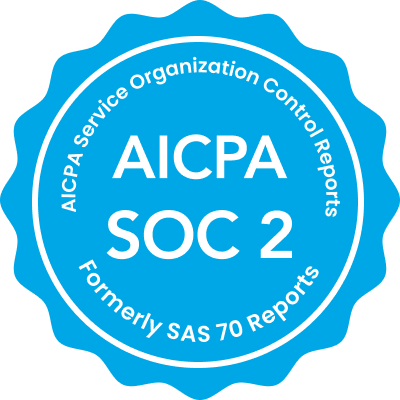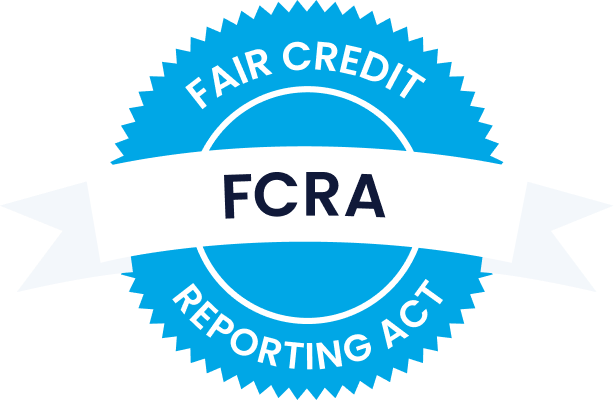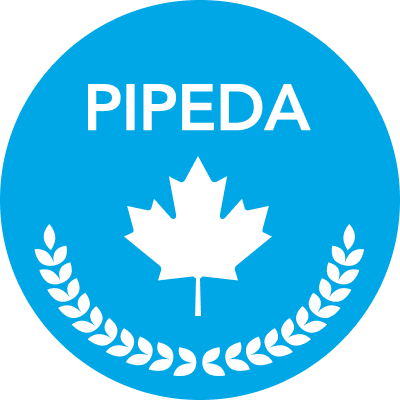As a landlord, you’ll inevitably have to deal with steep expenses, whether planned or unplanned. Major repairs, large-scale renovations, lengthy evictions, and prolonged vacancies are some costs you may encounter while managing a rental property.
With the help of a reserve fund, you can survive these financial storms and continue business as usual.
In this guide, we’ll explore how a reserve fund can help your rental business stay afloat—even when you’re hit with an unexpected expense. We’ll also show you how to decide how much money to set aside and provide tips for ensuring your fund never runs dry.
Rental reserves: Rules of thumb
A reserve fund, sometimes called an emergency fund, is a pool of money intended to cover significant expenditures, irregular expenses, and unforeseen costs.
A general rule of thumb is to keep a minimum of four to five months of rent payments in reserve funds. If you’re a new landlord, building a reserve of six or more months for operating costs, like mortgage, insurance, taxes, and utilities, is ideal.
From here, you can adjust how much you ultimately save based on your property type and age, your risk tolerance, and other factors described in this article.
What is a rental property reserve fund used for?
Here are examples of the most common uses for cash reserves.
When a critical item in your rental suddenly breaks down, you’ll have no choice but to attend to the issue immediately, regardless of the cost. Some examples of urgent repairs include a burst pipe, leaky roof, electrical malfunction, sewer backup, and faulty appliances.
A capital expenditure is a major upgrade or renovation that increases the value of your property and extends its lifespan. Examples include:
- Replacing the roof.
- Installing new windows.
- Purchasing appliances with smart technology.
- Enhancing the kitchen with high-end cabinets and countertops.
A reserve fund can help you fund such projects, as they generally require a substantial cash infusion.
It’s unrealistic to assume that your rental will remain occupied year-round. Your current tenant may leave early without giving you proper notice. Or demand for rentals in your area may drop, and your property could sit empty for a month, resulting in lost income. During high vacancy periods, your reserve fund can serve as a financial cushion by covering your ongoing expenses, such as mortgage payments, insurance, property taxes, and utilities.
A wide range of costs are associated with finding a suitable tenant. These include advertising expenses, credit and background check fees, lease agreement paperwork, tidying up the unit between tenancies, and replacing door locks. You may also face considerable out-of-pocket costs to repair damages caused by a prior tenant.
Most maintenance tasks are routine and predictable, but some are not. For example, let’s assume you purchase a few new appliances for your unit. They won’t give you much trouble for many years, but eventually, you’ll need to repair or replace them. Seasonal and irregular expenses like landscaping, snow removal, painting, attic vent cleaning, and HVAC maintenance are also crucial for keeping your property in good condition. In such instances, the cash in your reserve fund will come in handy.
Extreme or unusual scenarios can occur out of the blue, possibly costing you a small fortune. Disasters like earthquakes, wildfires, riots, and infestations can lead to severe damage to your property, leaving you to foot the repair bills. Depending on the scope of your landlord insurance policy, you may lack coverage against such risks. A reserve fund can help cover any shortfall or, at the minimum, lessen the financial damage.
As a landlord, getting embroiled in a legal dispute with a tenant is always possible. Evictions, in particular, can drag on for months, leading to multiple months of lost rent. You may also face fines from local regulators if you violate local tenancy laws or building codes. For these reasons, allocating funds to cover legal fees and compliance costs is a wise move.
The right insurance policy for your rental property business can spare you from a financial disaster, but you’re still responsible for paying the deductible when filing a claim. In some cases, these can cost you thousands of dollars. Having funds in reserve will ensure you’re not left scrambling for cash when paying for this non-negotiable expense.
Key considerations for building a reserve fund
Putting together a reserve fund requires some careful foresight and planning. Here are the key factors to consider before you begin stashing away money for those rainy days.
Property type
The amount you should keep in your reserve fund will depend on your property type.
A single-family home requires extensive upkeep, repairs, and renovation work. It has more rooms and amenities to care for, so more things will need fixing or periodic upgrades. There’s a lot of exterior maintenance that you’ll be responsible for as well, including the roof, siding, patio, deck, and landscaping. Therefore, if you own a detached home, you’ll need a large reserve fund.
In comparison, you can get by with a relatively small reserve fund for a condo. Condos are typically much smaller than family homes, with fewer rooms and amenities and no basement or attic. You also don’t need to attend to landscaping duties or maintain the building’s exterior components, though you may encounter special assessments.
Mac’s Pro Tip: A special assessment is the sum a condo corporation charges owners if it doesn’t have enough to cover expenses related to the building’s common property.
Age and condition of the property
Not surprisingly, an older property will need far more in the way of repairs and maintenance than a newer one.
You can anticipate spending more money repainting walls, replacing hazardous electrical wiring, unclogging drains, patching up holes in walls, and replacing damaged windows. Older homes are also more likely to have outdated décor, furnishings, and appliances. As a result, you may need to do some remodeling to ensure it can attract renters.
However, there is one exception: Suppose the previous owner did extensive repairs and renovations before you purchased the home. In that case, it’s okay to maintain a smaller fund, as you won’t need to invest as much time and money in the property initially.
With a newer home, it’ll be many years before it requires an extensive overhaul or costly repair work. The appliances, light fixtures, flooring, and other features should already reflect current trends and styles.
Mac’s Pro Tip: For older properties, consider keeping 6 to 8 percent of the monthly rent in your emergency fund. For newer properties, a minimum of 2 percent of the monthly rent should be put aside.
Personal risk tolerance
If the thought of emptying your bank account overnight to cover an emergency repair makes you feel uneasy, then you’d be better off keeping a large sum of money in reserve.
Being risk-averse will also influence how you manage your rental business. You may be more selective with who you choose as your tenant. As a result, your property could remain vacant longer, resulting in more lost rental income. For this reason, it would be sensible to have a larger reserve fund.
On the other hand, if you’re comfortable taking on more risk, a modest reserve fund will work fine. You can allocate more of your profit elsewhere, such as a down payment for a new rental property.
Mac’s Pro Tip: Never rely solely on credit cards and lines of credit to function as your reserve fund. You’ll be charged high interest rates, and your lender can restrict the amount you can borrow.
Experience as a landlord
Suppose you’re a newcomer to the rental industry. In that case, you’ll want to have a larger pool of money sitting in your reserve fund for the following reasons:
- It’ll take longer to fill a vacancy, as you’ll spend more time screening tenants or repairing your property to make it suitable for occupancy.
- You’re more likely to make financial blunders, such as overpaying for repairs or remodeling work.
- You lack the skills and knowledge to effectively manage the risks of owning a rental property, which could include dealing with troublesome tenants or having the proper insurance coverage.
In addition, as a new landlord, you’re likely starting with only one or two rental units. As a result, any sizable financial commitment will have a significant negative impact on your profit since each property you own represents a massive slice of your business. Therefore, at this stage, you should focus on increasing your reserve fund to decrease your overall risk.
On the other hand, more experienced landlords who own dozens of properties can diversify their risk. If one unit incurs a steep expense, it’s not a big deal, because rental income from the other will offset the loss. In addition, a professional property owner will likely commit fewer mistakes in running their business and feel more confident in getting by with a modest reserve fund.
Mac’s Pro Tip: If you’re a new landlord, aim to build a reserve that can cover a minimum of six months’ rent payments. As you gain experience, you’ll feel more at ease with a smaller reserve fund.
Market demand
The state of the economy (both local and national) affects demand for rental properties, which, in turn, impacts vacancy rates.
During a recession, people are more inclined to rent than commit to buying a home. This situation results in shorter vacancies, so you won’t need to dip into your reserve fund too often as you’ll enjoy a steady rental income.
On the flip side, if the economy is booming, more people are willing to purchase a home, which means it’ll take longer to find a tenant. As a result, you’re more likely to tap into reserves to cover your monthly operating costs as your unit sits empty.
Regarding seasonality, more people tend to move out in the summertime, so you’ll have more potential tenants to select from if you’re looking to fill a vacancy. During the fall and winter, renters usually prefer to stay put, so getting a tenant could take longer.
Of course, rental vacancy rates will also vary by location. Be sure to check rates across Canada and the United States.
Mac’s Pro Tip: Screen applicants carefully, even if your unit remains empty for a while. To prepare for this scenario, have enough cash reserves to cover at least a two-month vacancy.
Tips to build your rental property reserves
Maintain your funds in a separate account. Keep your cash reserves in a bank account that’s different from the one used for day-to-day operations. That way, you’ll avoid applying the money toward regular expenses. To ensure your reserve fund is easily accessible and well-preserved, invest the cash only in low-risk assets like a high-interest savings account or cashable guaranteed investment certificate (GIC).
Make regular contributions. To build a healthy reserve fund quickly, commit to making regular deposits. A good pace is once per month after you receive rent from your tenants. You can increase or decrease the size of your contributions as needed, but staying consistent is the key.
Regularly inspect your property to determine its needs. Try to do an onsite inspection of your property at least twice a year. By doing so, you can identify areas that need extensive repair work or significant remodeling ahead of time and calculate the cost. You can then determine whether your fund has ample cash reserves to cover the anticipated expenses.
Use your reserve fund wisely. Avoid using the money in your reserve fund for routine expenses like cleaning costs, office expenses, minor repairs, utility bills, and property management fees. This habit can quickly deplete your reserves and leave you scrambling for cash when something unexpected happens.
Review your fund’s status on a regular basis. Review your reserve fund at least once yearly to determine whether it contains enough money to meet your anticipated needs over the next several years. Always set aside a little extra for unexpected expenses, too. A general rule is to dedicate 80 percent of the fund to predictable costs and 20 percent to unplanned expenses.
Seek professional financial advice when needed. If number crunching isn’t your forte, consult an accountant or financial planner to help establish a strategy for your reserve fund. Ideally, the financial professional you work with will have direct experience with rental properties or understand the industry well enough to provide genuine and helpful advice tailored to you as a landlord.
Our final thoughts
As a property owner, your day-to-day expenses are steady and predictable—until they’re not. Eventually, you’ll need to contend with significant and unforeseen costs, whether it’s an emergency repair bill, hefty insurance deductible, or extended vacancy. But with a reserve fund by your side, you’ll have the financial firepower to cover them and keep your rental business thriving.
A good rule of thumb is to earmark 6 to 8 percent of your monthly rent for your reserve fund. From there, you can adjust this figure based on factors like the age and condition of your property, the amount of risk you’re willing to assume, and your overall experience and knowledge as a landlord. Be consistent in depositing money in your reserve fund and review it periodically to ensure it’s large enough to meet your ongoing needs.
SingleKey’s Rent Guarantee can play a role in your reserve fund strategy to help you reduce the financial risks of renting. Learn more about protecting your rental income if you experience unexpected financial bumps in your rental journey.





